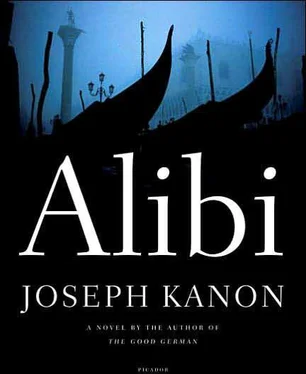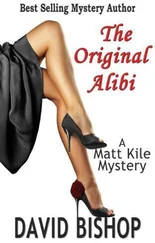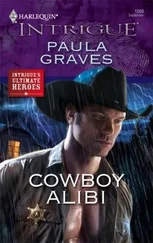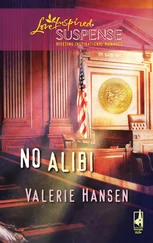Joseph Kanon - Alibi
Здесь есть возможность читать онлайн «Joseph Kanon - Alibi» весь текст электронной книги совершенно бесплатно (целиком полную версию без сокращений). В некоторых случаях можно слушать аудио, скачать через торрент в формате fb2 и присутствует краткое содержание. Жанр: Триллер, на английском языке. Описание произведения, (предисловие) а так же отзывы посетителей доступны на портале библиотеки ЛибКат.
- Название:Alibi
- Автор:
- Жанр:
- Год:неизвестен
- ISBN:нет данных
- Рейтинг книги:3 / 5. Голосов: 1
-
Избранное:Добавить в избранное
- Отзывы:
-
Ваша оценка:
- 60
- 1
- 2
- 3
- 4
- 5
Alibi: краткое содержание, описание и аннотация
Предлагаем к чтению аннотацию, описание, краткое содержание или предисловие (зависит от того, что написал сам автор книги «Alibi»). Если вы не нашли необходимую информацию о книге — напишите в комментариях, мы постараемся отыскать её.
Alibi — читать онлайн бесплатно полную книгу (весь текст) целиком
Ниже представлен текст книги, разбитый по страницам. Система сохранения места последней прочитанной страницы, позволяет с удобством читать онлайн бесплатно книгу «Alibi», без необходимости каждый раз заново искать на чём Вы остановились. Поставьте закладку, и сможете в любой момент перейти на страницу, на которой закончили чтение.
Интервал:
Закладка:
“Where’d you get the shoes?”
“Borrowed. A friend keeps them for Carnival every year.”
“Very fancy.”
“Vulgar?” she said, concerned.
I smiled at her. “No, fancy. Perfect.”
The canals got narrower after we drifted past the hotels and began to circle around to the Fenice water entrance. There was no sound but an occasional snatch of radio and the smack of the steering pole hitting the water. A light mist was rising, just high enough to soften the lights.
“My god, it’s beautiful like this,” she said. “No wonder they come.”
“You’ve lived here all your life.”
“Not in a gondola. It’s different.” She turned to me. “You make me a tourist.”
We turned a corner into a small lighted basin and one of those scenes that gives Venice its storybook quality-a traffic jam of boats rocking against one another as people stepped up to the pavement, the familiar taxi drop-off made theatrical by the water. After the shadowy canals, the lights here were festive, opening-night bright, catching jewels and white silk scarves.
“You see, it’s another city. People like that,” she said. A woman covered in white fur was being handed up to a footman.
“Never mind. They’ll all be looking at you. ‘Who’s that up there in the box?’ ”
“It’s a box? Whose?”
“A friend of my mother’s.”
“A rich American?”
“No, Venetian. Not rich either. A doctor.”
“My father was a doctor. He didn’t have a box at La Fenice.”
“This one had doges in the family.”
“Oo la. A doge’s box.”
I smiled at her. “You don’t believe me?”
“You, yes. Maybe not him.”
Then our gondola reached the entrance and I had to help her out and tip the gondolier, and her attention shifted to the crowd inside. We took the stairs to the second tier and followed the number plates to Gianni’s box. Every light in the theater seemed to be on, making the red-and-gold walls glow, almost burning. We were the first to arrive, so took the seats nearest the rail.
“Who else is coming?” Claudia said.
“I don’t know. Maybe he has the whole thing. Here, let me take your coat.”
“A minute,” she said, reaching into the pocket and pulling out a fan, then opening it, her eyes lowered in a mock flirtation over the edge. “Like this?”
“Where’d you get it?”
“With the shoes. A Carnival costume.”
“Not that, though,” I said, nodding at the brooch on the front of her dress.
“No, my mother’s. A friend hid it.”
“Hid it?”
“When I was away.”
She went to the edge of the box and leaned forward, taking in the scene like gulps of air. Below, people were settling in and looking around, nodding to one another, testing their opera glasses, everyone smiling, expectant.
“Look at them, like birds,” she said, her eyes darting around the theater.
I glanced down-the dresses in fact were as bright as feathers-then over at her. Her dress, a dark blue clinging fabric gathered at the waist, would have been dull without the pin, but it opened at the neck in a way that drew your eyes upward, toward the face, flushed and eager, and her hair had been pulled back, exposing her ears, making her look even younger. A different Claudia, girlish and wide-eyed, not the woman in the hotel room. How many others were there?
She caught my stare and pulled up the fan again, giggling, having fun.
“Oh, you brought glasses,” she said as I lifted them out of my pocket. “Can I see, please?” Suddenly twelve.
I watched her as she scanned the audience.
“There’s Rusconi, from the Accademia. My god, what a wife. Two of him. Do you think Signor Howard’s here?”
“No idea,” I said, still watching her, face tilted up now as she took in the upper tier.
“Where do they all come from?” she said. “You always hear it’s a small town, but I don’t know any of them.”
“Maybe it’s small to them. Same people.”
“The musicians are coming,” she said, almost fidgeting now with anticipation.
There was a final rustle of feathers below as the lights dimmed for the overture, then the music started and I moved my chair closer to hers. She was sitting erect, years of table manners and piano lessons, a well-brought-up girl. The back of her neck was pale and thin, and when I reached to touch it with my fingers, she turned with a shy smile, as if in fact we’d been flirting over fans.
The opera was Cosi fan tutte, and since the program notes were in Italian, beyond my guidebook vocabulary, I just sat back and listened, not even bothering to follow the story. Real fans and full-skirted gowns began to appear on the stage below, as natural there as the gilt-and-red wallpaper. How did they stage tragedies in a room like this? Nothing worse than mistaken identity and harmless jealousy could happen here. When Claudia leaned over to whisper, “They’re pretending to be Albanians,” I almost laughed out loud at the silliness of it, then felt a kind of giddy release. Even Claudia was smiling broadly, almost grinning, maybe the way she used to be all the time, after the piano lessons.
The four lovers were singing an ensemble piece when the door opened behind us. I turned to find a middle-aged woman in a prewar evening gown, trailed by a white-haired man with a bushy fur-collared coat, like the cartoon plutocrat on Monopoly cards. Everything about her was lacquered-glistening lipstick and nails, dress shiny with beadwork. She looked at us, her eyes moving from surprise to displeasure in a second, obviously put out to find strangers in her box. I got up, gesturing to my front-row seat, but she waved her hand in a kind of dismissal, pretending to be concerned about distracting the people next to us, and took the chair behind.
We spent the rest of Act I speculating about one another-only Claudia in all that rustling and craning of necks seemed to be paying attention to the opera-but it was only when the interval finally came that we could stand and introduce ourselves in the light. Their name was Montanari. I mentioned Gianni and insisted that the woman move to the front row, but she was interested only in Claudia now, literally going over her from head to foot, eyes cold and superior behind the public smile. Then she raised her head, finished, with that peculiar satisfaction of finding someone wanting. Claudia, who had started with a polite nod, moved back a little against the rail, caught by the woman’s gaze, her color suddenly draining away.
“Grassini,” the woman said carefully, repeating Claudia’s name as if she were trying to place her, the way her eyes had judged the rhinestone slippers cheap, the dress ordinary, everything somehow wrong.
And for a second I saw it too, not the young skin and high spirits that had made everything seem right before, but someone found out, in the wrong box. There are tiny moments that change the nature of things. I glanced at Signora Montanari, the withering, stupid eyes, and suddenly I wanted to fold up Claudia in some protective cape, safe, so that no one could look at her again. I touched her hand at the rail, asking her to read my face. Never mind about the dress, never mind about any of it. You’re not just someone I sleep with.
But Claudia’s color had come back and with it her assurance. “Yes, Grassini,” she said evenly. “Perhaps you knew my father, Abramo Grassini.”
The woman blinked. “Ah. Abramo. No.” She turned to me. “And you’re a friend of Gianni’s?” she said, still assessing.
“Yes,” I said easily. “He’s with a patient. I’m sorry about the seat. Will you have a drink with us?”
“No, no, we’re meeting some people.” She gathered up her cloak, eager now to leave. “Please,” she said, evidently offering us the run of the box.
Читать дальшеИнтервал:
Закладка:
Похожие книги на «Alibi»
Представляем Вашему вниманию похожие книги на «Alibi» списком для выбора. Мы отобрали схожую по названию и смыслу литературу в надежде предоставить читателям больше вариантов отыскать новые, интересные, ещё непрочитанные произведения.
Обсуждение, отзывы о книге «Alibi» и просто собственные мнения читателей. Оставьте ваши комментарии, напишите, что Вы думаете о произведении, его смысле или главных героях. Укажите что конкретно понравилось, а что нет, и почему Вы так считаете.












